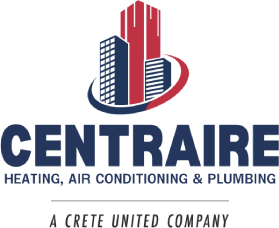Commercial building owners and facility managers have a multitude of choices when it comes to selecting a heating system for their properties. Amidst the diverse range of options, hydronic heating systems have increasingly gained popularity across various industries. Hydronic systems leverage heated water in their operation to provide an energy-efficient and comfortable heating solution that can outperform many traditional systems. By understanding the benefits and applications of hydronic heating, you can make an informed decision that best suits your specific needs and enhances your building’s overall performance.
We are a trusted provider of high-quality heating, filtration, air conditioning, and plumbing services, and our expertise extends to the design, installation, and maintenance of commercial hydronic heating systems. This introduction will provide an overview of the advantages of hydronic systems, including their energy efficiency and indoor comfort benefits, and will also explore the various configurations available. By offering tailored configurations, hydronic systems can be customized to address specific needs, ensuring a highly effective heating solution that minimizes energy waste and optimizes comfort levels in any commercial space.
The Fundamentals of Hydronic Heating Systems: How They Work and Their Key Components
Hydronic Heating Basics
Commercial hydronic heating systems function by using heated water as a medium to transfer heat throughout a building. At the core of these systems is a boiler, which heats the water before it is circulated to various distribution points, such as radiators or in-floor tubing. As the heated water passes through these points, it transfers heat to the surrounding air, heating the space efficiently and uniformly.
Key Components
The main components of a hydronic heating system include a boiler, expansion tank, pumps, piping, and distribution devices such as radiators, baseboard heaters, or fan coil units. These components work together to deliver consistent and efficient heating throughout the building.
Benefits of Commercial Hydronic Heating: Energy Efficiency, Indoor Comfort, and Beyond
Energy Efficiency
One of the primary advantages of hydronic heating systems is their energy efficiency. Since water is a highly effective conductor of heat, these systems require less energy to maintain comfort levels compared to forced-air systems. Additionally, temperature control features such as zoning can further optimize energy usage based on the specific needs of each area within the building.
Enhanced Comfort
Hydronic heating systems deliver uniform comfort throughout commercial spaces. By eliminating the draftiness associated with forced-air systems, as well as providing consistent temperatures across floor surfaces, hydronic heating ensures a more comfortable environment for occupants.
Quiet Operation
Hydronic systems operate with minimal noise, as there are no fans or blowers required to distribute the heat. This quiet operation makes commercial hydronic heating ideal for various settings, such as offices, retail environments, and even hospitals.
Types of Hydronic Heating Configurations: Radiant Floors, Baseboard Heaters, and Fan Coil Units
Radiant Floor Heating
Radiant floor systems feature tubing embedded within the floor surface, through which heated water is circulated. As the water transfers heat to the floor, it radiates warmth upwards, creating an even and comfortable temperature distribution. This configuration not only provides superior comfort but also allows for more efficient heating as heat naturally rises in the space.
Baseboard Heaters
Hydronic baseboard heaters consist of a series of pipes and fins installed along the base of a wall. As the heated water circulates through the pipes, the fins dissipate the heat into the room. These heaters offer consistent and energy-efficient heating, with the added benefit of a low-profile design.
Fan Coil Units
In fan coil systems, heated water from the boiler is circulated through a heat exchanger, which is then connected to a fan and ductwork system that distributes the heated air throughout the building. This configuration offers the flexibility to combine the benefits of hydronic heating with those of forced-air systems, such as air filtration and cooling capabilities.
Selecting the Right Hydronic Boiler System: Fuel Types, Size, and Efficiency
Fuel Types
Commercial hydronic boilers are available in various fuel types, including natural gas, propane, oil, and electric. Choosing the right fuel type for your building will depend on factors such as energy cost and availability in your area.
Size and Capacity
Selecting the appropriate boiler size and capacity for your hydronic heating system is crucial for maintaining energy efficiency and system performance. Consult a professional HVAC specialist to help determine the optimal boiler size based on your building’s specific heating requirements.
Efficiency Ratings
When selecting a hydronic boiler system, consider its efficiency ratings, such as Thermal Efficiency and Annual Fuel Utilization Efficiency (AFUE). A higher efficiency rating indicates that the boiler will utilize less energy to produce the desired amount of heat, ultimately resulting in cost savings for the business.
Effective Maintenance Tips for Commercial Hydronic Heating Systems: Ensuring Peak Performance
Regular Inspections and Maintenance
Scheduling routine inspections and maintenance is essential for the peak performance of your commercial hydronic heating system. A professional HVAC specialist can identify and address potential issues before they become larger problems, ultimately extending the lifespan of your system.
Cleaning and Flushing
Keep your hydronic heating system running efficiently by ensuring it is cleaned and flushed regularly. Removing any sediment or buildup within the system will help to maintain peak performance and prevent energy loss.
Conclusion
Commercial hydronic heating systems offer a versatile and energy-efficient solution for maintaining indoor comfort in a variety of settings. By understanding the key benefits, configurations, and maintenance requirements, business owners and facility managers can make informed decisions that optimize the long-term performance, efficiency, and reliability of their heating systems. Our team of experienced professionals at Centraire Heating, Air Conditioning & Plumbing, Inc. is here to provide the expertise and support needed to ensure a seamless commercial hydronic heating installation in Eden Prairie. Contact us today to discuss your project and discover the advantages of hydronic heating for your business.



